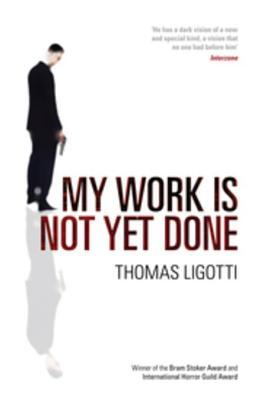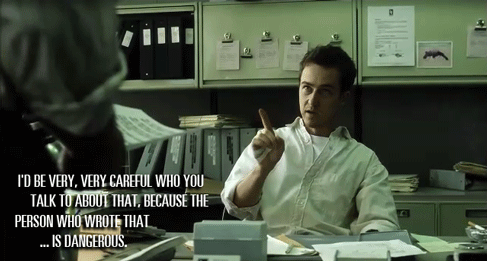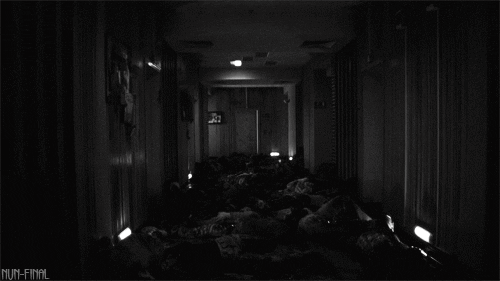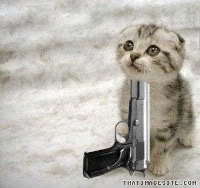What do you think?
Rate this book


192 pages, Kindle Edition
First published June 1, 2002




 is Frank Dominio. Frank is a scared, introverted loner who holds a "lower-middle management" position at a huge, nameless “mega corporation.” Frank suffers from OCD and a serious persecution complex and feels loathing and disgust for humanity (who he refers to as swine). This loathing is simply of reflection of Frank's bleak outlook on life in general and his view that anyone who willingly participates in the farce that is LIFE is a swine. As Frank explains on the first page of the story:
is Frank Dominio. Frank is a scared, introverted loner who holds a "lower-middle management" position at a huge, nameless “mega corporation.” Frank suffers from OCD and a serious persecution complex and feels loathing and disgust for humanity (who he refers to as swine). This loathing is simply of reflection of Frank's bleak outlook on life in general and his view that anyone who willingly participates in the farce that is LIFE is a swine. As Frank explains on the first page of the story:Of Course there is a measure of beast's blood in anyone who aspires to maintain a place in this world, anyone who lacks that ultimate decency to remove themselves from the herd either by violence to themselves or total capitulation to their dread.

The company that employed me strived only to serve up the cheapest fare that its customers would tolerate, churn it out as fast as possible and charge as much as they could get away with. If it were possible…the company would sell what all businesses of its kind dream of selling—Nothing. And for this product they would command the ultimate price—Everything.
This market strategy would then go on until one day, among the world-wide ruin of derelict factories and warehouses and office buildings, there stood only a single shining, windowless structure with no entrance and no exit. Inside would be—will be—only a dense network of computers calculating profits. Outside will be the tribes of savage vagrants with no comprehension of the nature or purpose of the shining, windowless structure. Perhaps they will worship it as a god. Perhaps they will try and destroy it, their primitive armory proving wholly ineffectual against [it]…




The company that employed me strived only to serve up the cheapest fare that the customer would tolerate, churn it out as fast as possible, and charge as much as they could get away with. If it were possible to do so, the company would sell what all businesses of its kind dream about selling, creating that which all of our efforts were tacitly supposed to achieve: the ultimate product -- Nothing. And for this product they would command the ultimate price -- Everything.
This market strategy would go on until one day, among the world-wide ruins of derelict factories and warehouses and office buildings, there stood only a single, shining, windowless structure without entrance or exit. Inside would be -- will be -- only a dense network of computers calculating profits. Outside will be tribes of savage vagrants with no comprehension of the purpose or nature of the shining, windowless structure. Perhaps they will worship it as a god. Perhaps they will try to destroy it, their primitive armory proving wholly ineffectual against the smooth and impervious walls of the structure, upon which not even a scratch can be inflicted.